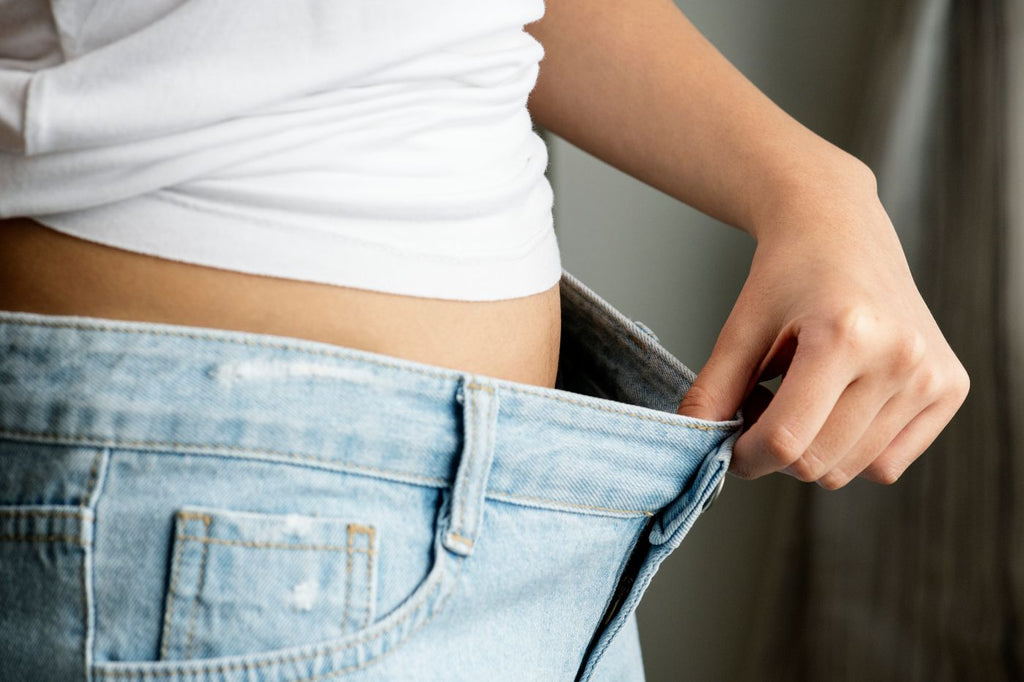
Can I Lose Weight Without Exercising?
Weight loss comes down to a simple equation – energy out vs. energy in. If the amount of energy that you consume each day, in the form of foods and beverages, is less than the amount of energy that you burn each day, you will lose weight.
The technical term for this is called a calorie deficit, as both the energy that we consume and the energy that we burn are measured in calories. When you consume more calories than you burn in a day you will gain weight, a term known as a calorie surplus.
Exercise helps to increase the amount of calories that you burn, which can make staying in a calorie deficit a little easier. However you will still be able to lose weight just by reducing your food intake.
In fact, it is estimated that exercise only accounts for between 10 – 30% of the total calories that you burn. It is the reason why spending an hour at the gym doesn’t necessarily permit you to demolish a bucket of fried chicken.
That being said, exercise is still incredibly beneficial to your overall health and wellbeing. If hitting the gym or going for a run are things that you just aren’t capable of at the moment, movements that are low impact and light such as walking, gardening or even cleaning the house are still great ways of getting your blood flowing and your joints moving to the benefit of your overall health.
If exercise is simply not an option for you right now, here are a few methods for dropping your calorie intake through diet alone:
Control Your Portions
Start by becoming more aware of the amount of food that you are eating. Often we sit down to our meals in front of our phones, computers or TVs and rarely pay much attention to what and how much is on our plate. Sometimes we can get through the entire meal without even really tasting it, and all of a sudden we feel bloated and uncomfortable.
Focus on your food and the feeling of fullness, and once you reach the point of satisfaction, this should signal an end to your meal.
You may begin to notice that actually you don’t need that much food on your plate, and that you are only eating so much out of habit. Make a conscious effort to reduce your portion size and you will automatically begin to reduce your calorie intake.
Increase Your Protein And Fibre
A diet that is high in protein and high in fibre will help you to feel fuller for longer. As portion sizes come down, you may initially feel like you are not feeling as satisfied as before.
By boosting your protein and fibre intake you will begin to increase feelings of satiety and the goal of reducing the amount of food that you eat will become easier.
Cut Out Processed Emptiness
Cutting back on your food quantity is one half of the battle; rethinking food quality is the other. Foods that are essentially empty calories must be removed and replaced with foods that are high in nutrients.There is only a finite amount of calories that you are able to consume each day, so it makes sense to get the most out of your allocation.
By cutting out things like sugary sweets and drinks, fried foods and processed snacks, and replacing them with whole foods, you are ensuring that you are putting the calories that you do consume to good use.
Drink Plenty Of Water
Choosing water over fizzy drinks is a no brainer when it comes to cutting out empty sugars and calories from your diet. Upping your water intake could also assist with weight loss by helping your body carry out its functions more efficiently, boosting your metabolism and potentially contributing to greater fat loss. It has the added benefit of temporarily filling you up which can help even out sudden hunger pangs.
Try Intermittent Fasting
Intermittent fasting is a powerful tool for reducing caloric intake by limiting your food consumption to within a fixed window of time. Not only can it help to quell any late night cravings that you might have previously caved in to, but it also has the added benefit of giving your digestive system a rest, which can promote healing, along with forcing your body to look for fuel sources outside of what you eat, namely from glycogen stores in the liver and energy stored in your body fat.
Get Plenty Of Sleep
Everything is harder when you aren’t getting enough sleep. Aside from messing with your emotions and will to live, lack of sleep can mess with your metabolism and the hormones that regulate your appetite, leading to the temptation to eat more. Make rest a priority and try to get as much quality sleep as possible.
Our Low Carb meals are designed specifically to help people with losing body fat. We do this by controlling the portion size – every meal is consistently a 300g serve. We also ensure that the meals are high in quality protein and fibre, which contributes to a greater feeling of satisfaction when eating the meals. Browse our meal options and get started on your weight loss journey today.
